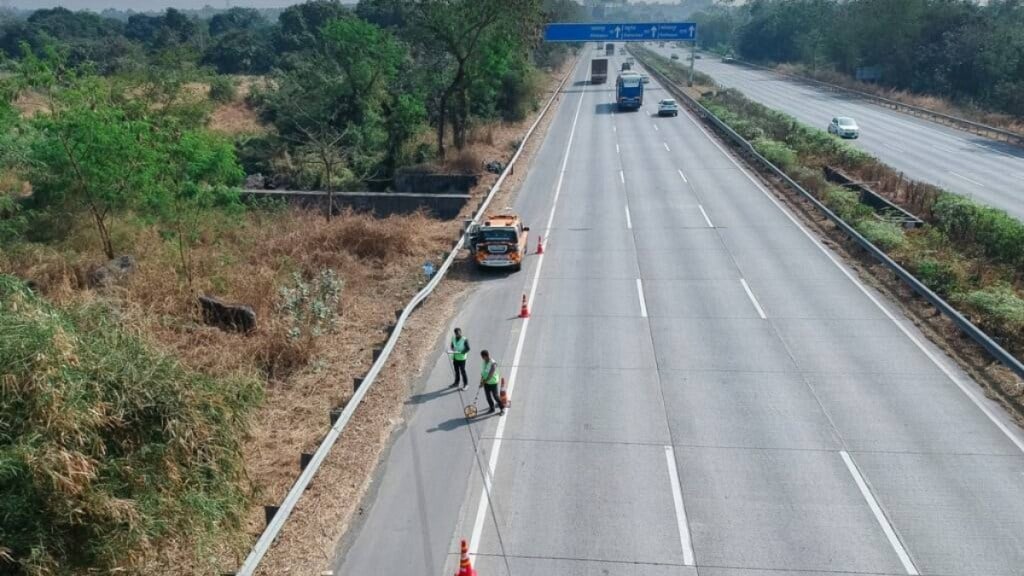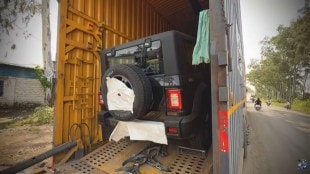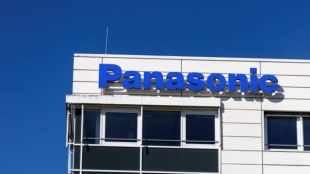In its 53rd year, today, March 4, marks the beginning of the National Safety Week, which was conceived to raise the awareness about principles of safety across sectors, including road safety, workplace safety, human health safety and environmental safety.
The Zero Fatality Corridor, a joint initiative of the Maharashtra State Road Development Corporation (MSRDC), SaveLIFE Foundation, Maharashtra Highway Police (HSP), Maharashtra Motor Vehicle Department and supported by SBI General Insurance, has led to an 58.3% reduction in road crash fatalities on the Mumbai-Pune Expressway (MPEW) since 2016, and 32% since 2022, marking a significant stride towards a safer and more secure roadway.
SaveLIFE Foundation and MSRDC guided by the Vision Zero philosophy have embarked on a mission to create a scalable and replicable national model to reduce road crash deaths across India. The transformative initiative, supported by SBI General Insurance, focuses on comprehensive interventions spanning the 5Es of Road Safety – Enactment, Engineering, Enforcement, Emergency Care, and Engagement.
The Zero Fatality Corridor initiative for the Mumbai-Pune Expressway was launched in 2016. Once infamous for recording 151 deaths in 2016, roughly 3 deaths every 2km, compared to the 2016 national average of 1 death per 2km, the expressway earned the distinction of being one of the deadliest expressways in the country. The Zero Fatality Corridor initiative was launched soon after with a mission to drastically cut road deaths on the expressway. Under the initiative, hundreds of interventions have been undertaken across road engineering, traffic enforcement, trauma care and road-user engagement.
These include:
Over 3,500 engineering issues were treated. Such as:
- Installation of over 176km of crash barriers
- Implementation of 200km of Tactile Edge Line and 3km of Tactile Shoulder Lines
- Treatment of 29 Construction Zones
- Closure of over 80 median openings
- Treatment of 1 Emergency median opening at km 26.6 and addressing an emerging black spot at km 82.7
Furthermore, to enhance the traffic enforcement measures:
- 2 Smart Patrolling vehicles were deployed with a focus on crash prevention
- Training was provided to HSP (Highway Safety Patrol) in speed and lane enforcement
- Enforcement drives were conducted by RTO and HSP during day and night, targeting overspeeding, lane violation, seat belt usage, and illegal parking
- Installation of 1 Vehicle Activated Speed Sign (VASS)
- 2 Speed Traps and 3 Actively Relocatable Speed traps were placed
- Enforcement of rear seat belt usage at 2 expressway toll plazas
- 500+ Forensic Crash Investigations were undertaken
- Advocated for, and provided technical inputs towards, the deployment of an Intelligent Traffic Management System (ITMS)
Furthermore, to strengthen emergency care and medical assistance on the expressway:
- The number of ambulances was increased from 2 to 8
- 3 ambulances were upgraded for improved medical response
- Trained over 1,700 police personnel and volunteers in Basic Trauma Life Support (BTLS) for enhanced emergency care skills
To address critical aspects of road safety and engage road users:
- 7 awareness campaigns focused on issues such as speeding, rear-end collisions, and the importance of rear seat-belt usage
- Played audio messages in 5 languages at Toll Plazas to effectively communicate safety messages to road users
- 2,500 truck drivers were trained in crash prevention skills, contributing to safer driving practices on the expressway
- Conducted training programs for 90 police and RTO officers, to enhance their skills in effective patrolling
- Organised training sessions for 27 engineers, police, and RTO officers, focusing on construction zone treatments to ensure safer infrastructure and road management
The not-for-profit says as a result of these interventions, the Mumbai-Pune Expressway witnessed a 58.3% decline in road crash deaths from 151 fatalities in 2016 to 63 fatalities (from 56 fatal crashes) up until 31st December, 2023.
Piyush Tewari, Founder & CEO, SaveLIFE Foundation said, “The Mumbai-Pune Expressway has seen a 58% reduction in road crash fatalities since 2016 and 32% since 2022. This is the result of the multi-agency collaborative approach of the programme. The success seen on this expressway has encouraged authorities across India to replicate this effort to save lives. By scientifically understanding the causes of road crash fatalities, over 3,500 road engineering issues were fixed, enforcement was strengthened by police and RTOs, ambulance placement was optimised, and extensive campaigns were undertaken to educate road users commuting on the expressway.”
“Most importantly, monthly reviews of the programme were undertaken by MSRDC, the Maharashtra Highway Police, and the Transport Department along with SaveLIFE Foundation to ensure complete alignment and synergy in ensuring that lives can be saved. The result is a testament to the fact that road crash fatalities can be significantly reduced across the state of Maharashtra and the country by taking a concerted and coordinated approach to understanding and resolving road safety issues,” added Tewari.
Dr Anil Kumar Gaikwad, Vice-Chairman & MD, MSRDC said, “Every fatality on the expressway is a matter of grave concern for MSRDC. We will leave no stone unturned to ensure we achieve zero deaths on this crucial link between Mumbai and Pune. MSRDC has implemented various safety measures on the Mumbai-Pune Expressway and this has resulted in the elimination of various types of crashes like run-off crashes, object impact crashes, head-on crashes, and poor visibility related crashes. Effort to achieve zero fatalities on the expressway is ongoing and MSRDC is fully committed to achieve this ambitious goal.”
Kishore Kumar Poludasu, MD & CEO, SBI General Insurance added, “At SBI General Insurance, we have consistently undertaken initiatives with a focus on road safety, as it has been one of our key focus areas under our CSR projects. Through our partnership with SaveLIFE Foundation on the ‘Surakshit Sadakein, Surakshit Bharat’ initiative, the project has resulted in a remarkable 58.3% reduction in road crash fatalities on Mumbai-Pune Expressway. Road Safety has always been of utmost importance to us, and we are committed towards making a significant impact on it. With the zero fatality corridor model, we are witnessing transformative changes on the roads, and we are honored to play a role in this journey. Together, we can transform these crash-prone highways into safer, Zero-Fatality Corridors.”




















